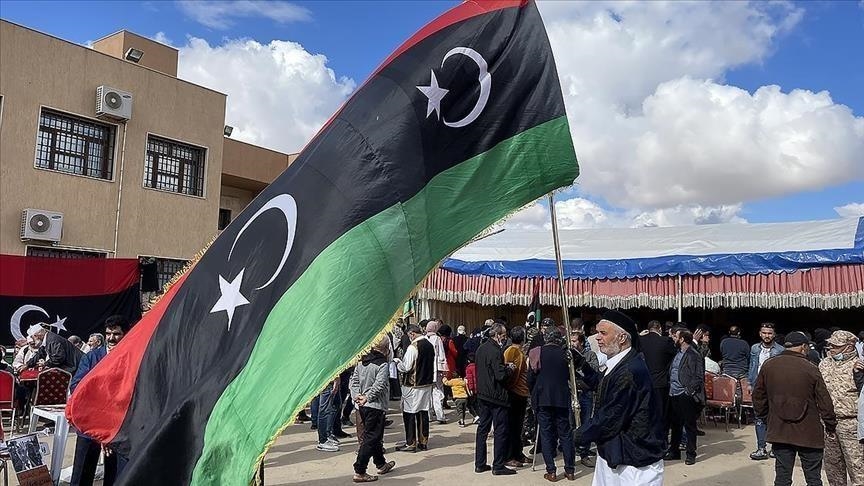Having referred to procrastination of election in Libya and its postponement from December 2021 to February 2022 Dr. Ahmad Bakhshi noted:” it is a decade since Libya has been suffering from chaos and the country has been fallen apart to two or three parts. The situation has created problems for Libyans and had regional as well as international consequences”.
He pointed to holding different rounds of negotiations in Tunisia and Paris aimed at putting an end to chaos and holding presidential and parliamentary elections in Libya and added:” Despite a date was fixed to hold election in the course of negotiations, but elements and indices for holding the election and also state-building and restoration of order to a society that was administered feudally were not brought into attention”.
The analyst of African issues stressed that:” the result of the process caused the election to delay because of the disputes that exist among those who were to hold the election from one hand, and also the candidates from the other hand. According to the Spokesman of the Libyan government, stubbornness between the Assembly of Deputies and Election Commission has led the situation to this stage”.
While elaborating the challenges created followed by the evaluation of the eligibility of candidates for election, Bakhshi pointed out to different views between the members of the Board for Evaluation of Eligibilities and Court of Appeal and said:” the confirmation and rejection of eligibilities created uncertainties in the process of holding election that has made the situation ambiguous for the future of Libya, to the extent that rejection of some candidates has caused concerns about the effect of their instigations on creating insecurity and continuation of chaos in Libya. Moreover, if their eligibility is confirmed, their performance in future and in the course of confrontation among competitors will be a noticeable issue”.
Libyan Society in Purgatory
He spelled out:” in fact the Libyan society has been placed in purgatorial status that earlier existed only among the interim government and Khalifa Haftar but now in addition to the two parties and the continuity of the situation, there exists an expectation called “election and issues related to democracy” which is important to African continent, France and some other countries. Moreover, the competition among groups as well as regional competitions have made the situation more complicated”.
Having referred to social and political situations in Libya, widening gaps among tribes and regions and also non-existence of integration during the past ten years, the university professor continued:” Disputes among parties involved have made the situation sensitive and stressful for Libya, some do not tolerate the status quo with the presence of the interim government in office. Some consider the competition among candidates for the election at present situation of Libya is dangerous. Moreover, there are also many challenges and uncertainties for post-election period”.
Perspective of the Continuity of Crises in Libya
Bakhshi underscored:” the conditions have made very complicated and dangerous circumstances in Libya and it seems that we will witness the continuation of such crises and even more violent than the past, along with the intensification of internal and regional competitions. Although it was emphasized in Paris Conference that an election should be held in Libya and prior to that nearly 20000 foreign troops who are present in the country and are in competition with each other should leave Libya, yet we witnessed no special movement. In such a situation, the future of Libya is faced with uncertainties. Moreover, a positive and bright future can not be depicted for the country”.
Having stated that exiting the present deadlock in Libya requires high intelligence and of course, high prices will unfortunately be imposed upon Libyan society, the university professor noted:” due to factionalism and division in the structure and among the groups in Libya, there is no united paradigm ruling over the country that can speak out the last word”.
In the meantime, Bakhshi continued:” it seems that if an international partnership-based force could have entered in the present situation and in view of the Libyan problems, it could have helped to set up a coalition government, then reaching a solution would have been conceivable. In this situation, there is no promising perspective to hold an election, partnership and setting up a government, and we will be witness the continuity of crisis with more severity”.
According to the expert of African issues, holding the election in February also seems to be unlikely. Having stated that some reports refer to the likelihood of holding the election in the next six months, he added:” unfortunately, despite the will to hold the election, no ground is paved for it. In fact, in the tribal society of Libya, prior to the holding of an election some elements should be established and put forward. Geographical conditions determine the votes in the country, and this is dangerous to national unity and national interests”.
Having referred to the international and political files and dossiers of a number of candidates in Libya, he considered the presence of these individuals only because of ethnical and tribal demand and said:” rejection or presence of these individuals will create some problems. In fact, election has turn to a deadlock in Libya and the way out of it, will also be costly and time taking and will create some problems for the region and international system”.
Having stated that the agreements reached in Tunisia and Paris have serious problems, he added:” it seems that at first stage a coalition government should have set up, and in the course of a two stage transitional period, they dealt with the election. Unfortunately, as this has not happened, and despite the role played by international organizations and some countries, the crisis intensifies and keeps continuing. Unfortunately, the election in Libya drives the wedges in the country instead of creating a united Libya”.










0 Comments